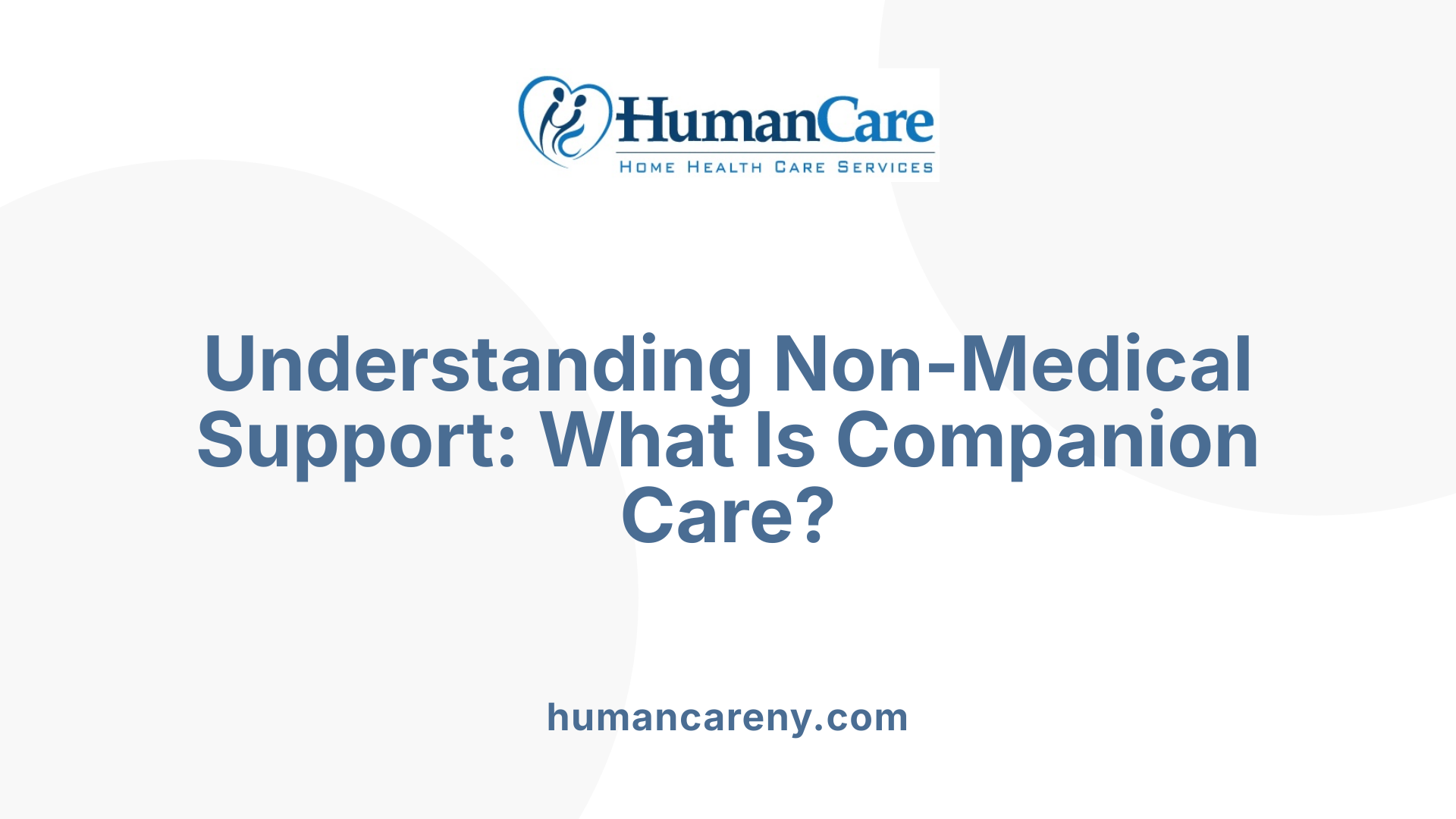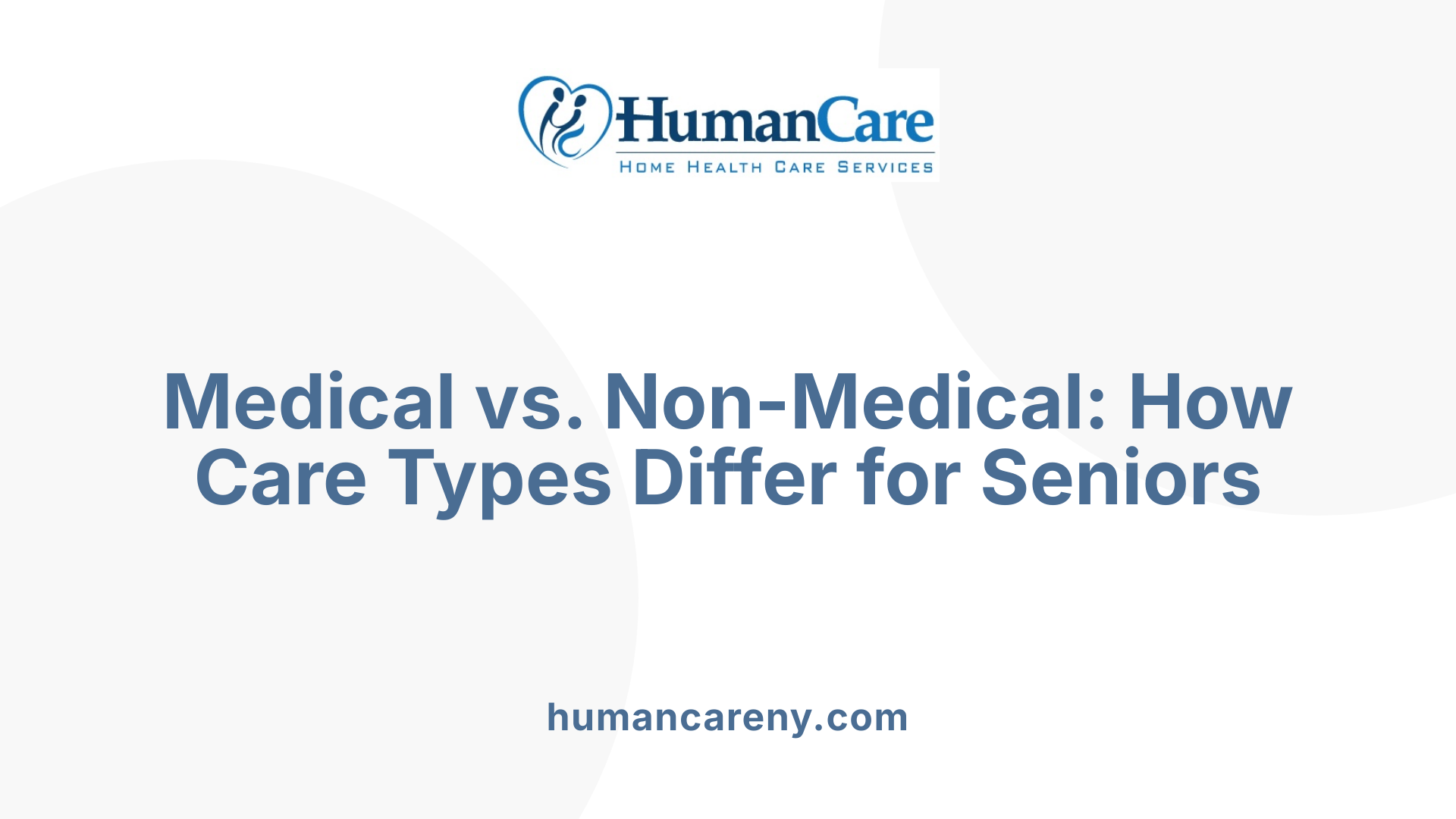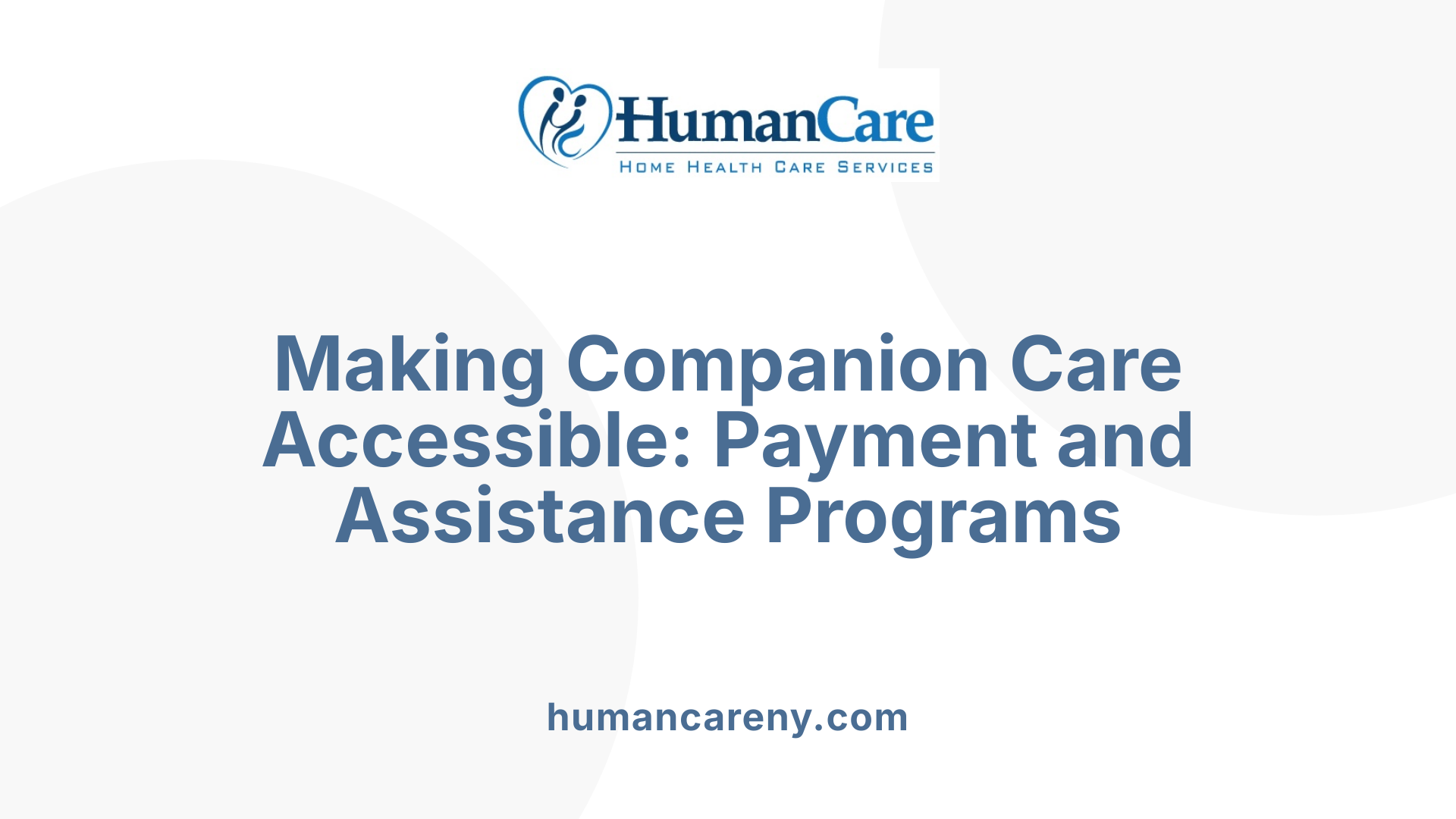Understanding the Vital Role of Companion Care
Chronic pain presents a persistent challenge for many elderly individuals, impacting their independence and quality of life. While medical treatments are essential, companion care plays an increasingly significant role in supporting seniors managing chronic pain within the comfort of their own homes. This article explores how companion care services contribute to pain management and overall well-being for the elderly.
Defining Companion Care: Non-Medical Support Tailored to Seniors' Needs

What is Companion Care?
Companion care is a supportive service designed to help seniors maintain their independence while living at home. Unlike medical care, companion care focuses on non-medical needs, offering assistance that promotes comfort and daily functioning.
What Types of Help Does Companion Care Provide?
This type of care includes a variety of tasks such as personal care (like grooming and hygiene assistance), running errands, light housekeeping to keep the living space tidy, and meal preparation to ensure proper nutrition. These services help seniors accomplish everyday activities that might become challenging as they age.
How Is Companion Care Different from Medical Care?
Companion care does not involve medical treatments or skilled health services. It is hands-on support aimed at enhancing quality of life rather than addressing medical conditions or rehabilitation needs.
How Is Companion Care Funded?
Generally, companion care is paid privately by the individual or their family. However, some community programs and resources are available for seniors with low income, providing more affordable access to these necessary services.
Companion Care and Chronic Pain: Addressing Daily Challenges

How Does Companion Care Assist with Activities Limited by Chronic Pain?
Companion care offers vital support for seniors dealing with chronic pain by helping with tasks that may be physically demanding or painful. This includes assistance with personal care such as bathing and dressing, managing errands, preparing meals, and light housekeeping duties. These services reduce physical strain and help seniors maintain their daily routines without excessive discomfort.
What Are the Benefits of Help with Personal Care, Light Housekeeping, and Errands?
Receiving help with personal care and household tasks relieves the burden of daily chores that can exacerbate pain. Light housekeeping ensures a safe and clean environment, minimizing fall risks. Assistance with errands allows seniors to obtain necessities without stressing painful joints or muscles. Together, these services improve quality of life and reduce pain flare-ups.
How Does Companion Care Support Senior Independence Despite Pain?
By providing non-medical aid tailored to individual needs, companion care enables seniors to live independently in their homes longer. It prevents isolation and the risk of injury from managing difficult tasks alone. This independence fosters a sense of control and empowerment even when chronic pain limits physical capability.
What Emotional and Social Support Does Companion Care Provide?
Beyond physical help, companion care offers valuable emotional and social engagement. Regular interaction combats loneliness and depression related to chronic pain. Companions provide encouragement, distraction from pain, and motivation to stay active and adhere to treatments, all important for effective pain management.
Distinguishing Companion Care from Home Health Care in Pain Management

What is the difference between non-medical companion care and skilled home health care?
Companion care focuses on supporting seniors with their basic needs to help them remain independent at home. This includes assistance with personal care, running errands, light housekeeping, and meal preparation. It is non-medical and primarily designed to enhance quality of life.
In contrast, home health care is provided by skilled medical professionals such as nurses and therapists. It includes specialized medical services like injections, wound care, medication management, and rehabilitative therapies, directly addressing medical pain management and recovery needs.
How does home health care serve as medical treatment?
Home health care delivers critical medical treatment at home, such as administering injections, managing wounds, and providing therapy services tailored to an elderly individual’s recovery or ongoing health issues. These skilled interventions are essential in managing pain and promoting healing outside of hospital settings.
What are the insurance coverage differences, including Medicare requirements?
Companion care is generally paid privately and does not typically qualify for insurance coverage due to its non-medical nature. Some assistance programs exist for low-income individuals.
Home health care, however, is often covered by Medicare and other insurance plans. To qualify, a physician must create a plan of care, certify that the patient is homebound, and order skilled services. This coverage supports the medical needs related to pain management and rehabilitation.
How does companion care complement medical home health services?
While home health care addresses direct medical needs, companion care provides the daily support necessary for an elderly person’s comfort and independence. Together, they create a comprehensive care approach, combining medical treatment with assistance in everyday activities to improve overall well-being during pain management.
Navigating Payment Options and Accessibility for Companion Care

How is companion care typically paid for?
Companion care is usually a privately paid service, meaning families or individuals cover expenses out-of-pocket. This payment model allows seniors to receive non-medical assistance, like personal care, errands, light housekeeping, and meal preparation, while maintaining independence at home.
Are there programs available to help low-income seniors access companion care?
Yes, some programs exist to support low-income seniors who need companion care. These programs aim to increase accessibility by providing financial assistance or subsidized services, though availability varies by location and funding.
How does companion care differ from Medicare-covered home health care?
Unlike companion care, home health care involves skilled medical services from professionals such as nurses and therapists. Medicare often covers home health care when specific criteria are met, including a physician’s plan and homebound status. Companion care generally does not qualify for Medicare coverage as it is non-medical.
What financial factors influence access to companion care?
Since companion care is mostly privately funded, affordability can be a challenge for many seniors. The lack of insurance coverage means ongoing costs must be managed by the individual or family, which can limit access. Programs for low-income individuals mitigate this issue somewhat, but availability is partial.
In summary, companion care is accessible primarily through private payment, with some assistance programs supporting low-income seniors. Its distinct non-medical nature differentiates it from Medicare-covered skilled home health care, impacting eligibility and financial responsibility.
Holistic Benefits: How Companion Care Enhances Elderly Well-being Beyond Pain Relief

How Does Companion Care Improve Mental Health and Reduce Isolation?
Companion care offers much-needed social interaction for seniors who might otherwise feel isolated. By engaging in conversation and shared activities, companions help diminish feelings of loneliness, which can significantly improve mental health and emotional well-being.
In What Ways Does Companion Care Support Medication Adherence and Therapy Attendance?
While companion care itself is non-medical, caregivers assist with reminders for taking medications and help seniors attend therapy appointments. This support plays a crucial role in managing chronic pain effectively by ensuring consistent treatment routines.
What Role Does Companion Care Play in Promoting a Safer Home Environment?
Companion caregivers assist with light housekeeping, errands, and meal preparation, reducing physical strain and potential hazards for the elderly. These supportive tasks help maintain a clean and safe home, lowering the risk of falls and accidents.
How Does Companion Care Enhance Overall Quality of Life for Seniors with Chronic Pain?
Beyond addressing basic needs, companion care provides emotional support and a sense of independence for seniors living with chronic pain. By encouraging social engagement and offering practical help, companion care contributes to a richer, more fulfilling life at home.
Integrating Companion Care for Effective Chronic Pain Management
Companion care serves as a vital support system for elderly individuals managing chronic pain, providing essential non-medical assistance that enables them to maintain independence and enhance their quality of life at home. While it does not replace skilled medical services, companion care complements these treatments by addressing daily tasks and emotional needs often overlooked in clinical settings. Understanding the distinctions between companion care and home health care, as well as the financial considerations involved, helps families make informed decisions about care options. Embracing companion care within a broader pain management strategy ensures that seniors receive comprehensive support tailored to their unique challenges.



